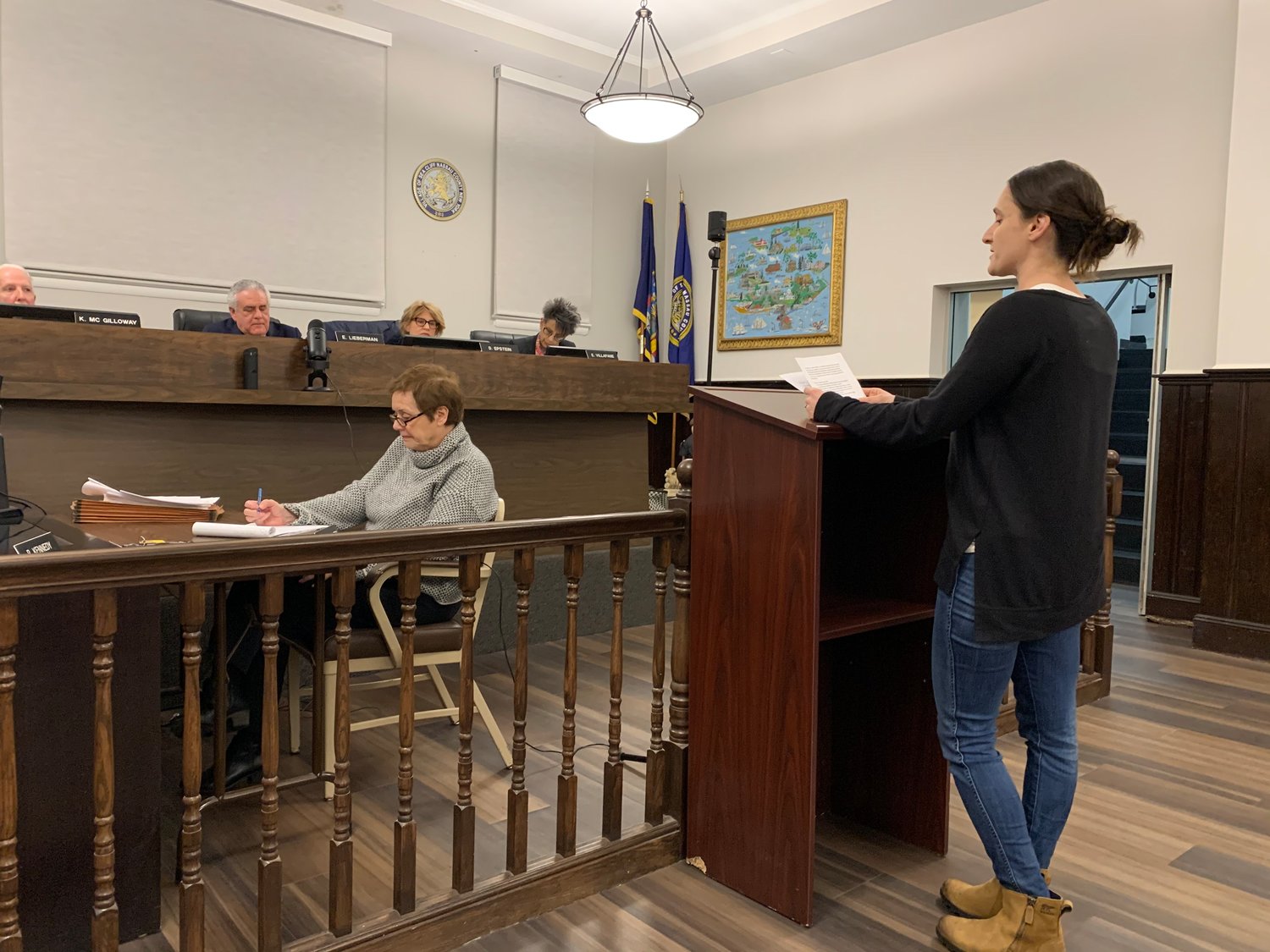NYAW hopes to filter Glen Head well by next summer
New York American Water sent out a press release on Jan. 30 stating that potentially harmful contaminants had been found in the Glen Head well. This week, company officials said they are close to installing filters on the site and that the contamination is not quite as dangerous as they had thought.
Of the utility’s 55 wells across the state, four were found to contain the contaminants 1,4-dioxane and perfluorinated compounds, or PFAS, such as perfluorooctanoic acid — PFOA — or perfluorooctanesulfonic acid — PFOS — in concentrations greater than the state’s proposed maximum levels. There currently are no such limits.
John Kilpatrick, NYAW’s Director of Engineering, said the company plans to install granular activated carbon vessels — large cylinders filled with carbon that strip out contaminants as water flows through them. He said the vessels will be borrowed from NYAW’s sister company, New Jersey American Water, significantly slashing their installation costs.
Kilpatrick said the filters’ installation requires approval from multiple municipal entities. He said NYAW has already acquired a permit from the Nassau County Department of Health and is waiting on zoning permits from the Town of Oyster Bay. He said the company had a zoning hearing with the town on June 25 and should receive a ruling within the next couple of weeks.
The main purpose of these permits, Kilpatrick said, surrounds the construction of buildings inside which the filters will stand. He said NYAW had met with the Glen Head-Glenwood Civic Association to go over the aesthetic qualities of the buildings and that the two parties came to an agreement about what should be there.
Civic Association President George Pombar said there will be two 22-foot-tall buildings next to the well on Roslyn Drive. He said he spoke with residents who live nearby and received the OK from them to move forward as well.
“The local Glen Head civics have been working with the New York American Water officials to ensure the Glen Head well water filtration matter that will correct the water contamination found is appropriately addressed with consideration to aesthetics and cost effectiveness,” Pombar said. “We have now reached that agreement.”
In February, Lee Mueller, NYAW’s external affairs manager, said NYAW was in litigation in federal court with several manufacturing companies that produce the chemicals to recover the company’s treatment costs. If the lawsuits succeed, she said, ratepayers would not have to shoulder the cost of treatment.
As of press time Wednesday, that litigation is ongoing.
Kilpatrick said the amount of PFAS contamination has remained consistent since January, that being between 15 and 20 parts per trillion. He said the United States Environmental Protection Agency has established health advisory levels of 70 parts per trillion, making water from the Glen Head well safe for consumption.
“I think it’s really important that our customers out there know that this is not an acute health risk,” Kilpatrick said. “The water is absolutely safe to drink — I think it’s more about us as a community. We just want these chemicals out of our environment and we’re a lot more focused on that.”
If NYAW is given the go ahead to install its filters, Kilpatrick said construction could start in late fall and should take roughly three months to complete through the winter. However, he said the coronavirus pandemic could present delays that are out of the company’s control. He also said the state’s lack of a regulatory number which would serve as a benchmark for how much PFAS could be present in water, something which is still under review, could change things as well.
With water usage at its peak during the summer, some residents are still concerned about the quality of the water they are drinking.
Suzanne Cohen, of Sea Cliff, said she is most concerned about the health of her children, Bea, 6, and Benjamin, 4. She said many residents, especially mothers, share the same concerns. She said she is troubled by the lack of communication from NYAW and municipalities about water quality, enforcing this level of uncertainty among residents. She said any sort of updates from the company or officials from the town or the Village of Sea Cliff would be appreciated, even if there is nothing new to report.
“I think there’s a big feeling of fear among parents and new residents that are residents because they don’t know if our water is safe,” Cohen said.
New Sea Cliff resident Sarah Kamens said she and her partner, Udi, are moving to the village this week with their one-year-old son, Adler. She said the water quality concerns her primarily because of her son’s age. She has heard of different solutions to the issue, she said, including the installation of filters in one’s home, but she has not been given enough information to determine what the best course of action would be.
“When you have little kids, everything seems like a really big deal because you’re putting it in your kid’s body,” Cohen said. “It’s another level of worry and fear for parents.”
Cohen said her concerns are still in place after hearing that NYAW said the water is safe according to EPA guidelines. She said it is likely that the regulations released by the state will be stricter, possibly changing the status of the water’s drinkability.

 47.0°,
Mostly Cloudy
47.0°,
Mostly Cloudy 




